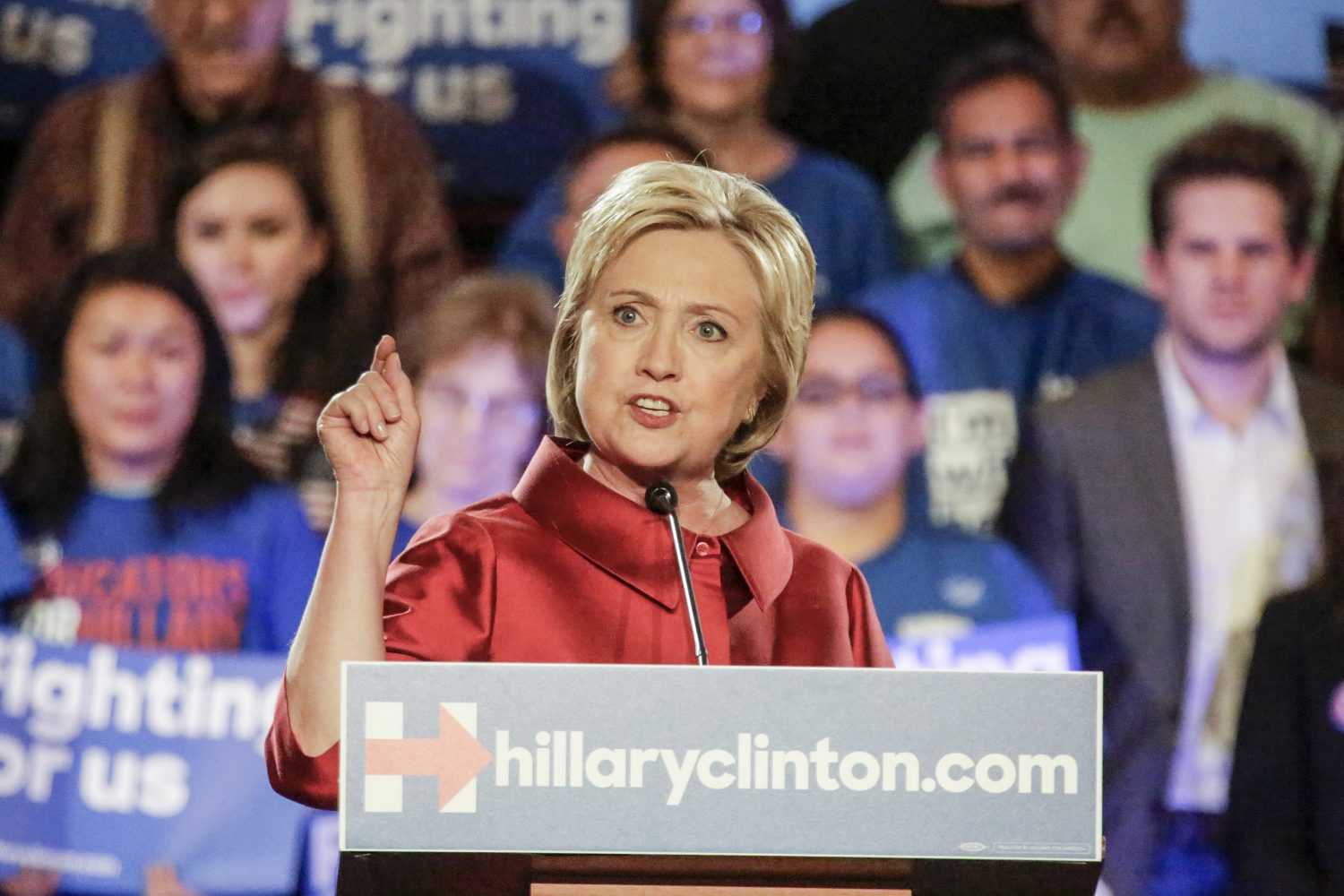The Nevada Democratic Caucus and South Carolina Republican primary were held Saturday, Feb. 20, 2016. The results were as expected with Hillary Clinton and Donald Trump winning their respected parties.
In Nevada, Clinton managed to beat rival Senator Bernie Sanders, despite a recent push from the Sanders campaign to try and win over key voting groups within the state. The race ended with Clinton at 52.6% and Sanders at 47.3%.
Although Clinton managed to pull of a victory, the results were once again incredibly close. At this point in the race, Sanders has beaten Clinton by a larger margin of votes in the one state he won (New Hampshire) than Clinton has in her two (Iowa and now Nevada).
After final results came through, Sanders told his supporters via email that Nevada was a win for his campaign, and proved that he was only continuing to gain momentum.
“We’re closing the gap dramatically in states that have yet to vote, and there’s a path to victory for our political revolution,” Sanders said. “If we continue to stand together, we’ll continue to win.”
He also reiterated his ability to possibly win, not only more of the upcoming primaries, but potentially a general election as well.
“I want to be completely clear with you about what this result means: Nevada was supposed to be a state ‘tailor made’ for the Clinton campaign, and a place she once led by almost 40 points. But today, we sent a message that will stun the political and financial establishment of this country: our campaign can win anywhere,” Sanders’ email read.
Senior and president of the Niles West Politics and Current Events (PACE) club, Alan Kotylar, understands that Sanders has the support of an overwhelming majority of young voters, but is lacking among one crucial group: African Americans.
“Among young voters, especially white and male, Bernie has an enormous lead over Hillary,” Kotylar said. “Bernie’s problem, which he seems unable to overcome, is the fact that African Americans are overwhelmingly Hillary supporters.”
As the two turn towards the South Carolina primary on February 27, Clinton is ahead by 25%, unsurprising considering about half of Democrats in South Carolina are black.
Meanwhile, Donald Trump won every one of the 50 available delegates, due to the Republican winner-take-all system. Trump, garnered 32.5% of the vote. Trump touted his own win during his victory speech later in the night.
“It’s tough, it’s nasty, it’s mean, it’s vicious, it’s beautiful,” Trump said, referring to the business of running for president. “When you win, it’s beautiful.”
Kotylar predicts Trump will continues wining roughly one third of the vote.
“His ‘floor’ and ‘ceiling’ are right next to each other — that is, most republicans either love him or hate him,” Kotylar said. “Nothing he does undermines his support, and inversely, nothing he does gains him additional support. He is firmly in control of one third of the party.”
Second place was a virtual tie, with Marco Rubio and Ted Cruz managing to attract 22.5 and 22.3% of voters, respectively. The two first-term senators are increasingly being seen by conservatives as possible alternatives to a Trump presidency.
Cruz attempted to portray himself as the only Republican who can truly beat Trump, having done it before in the Iowa caucus.
“We are the only campaign that has beaten, and can beat, Donald Trump,” Cruz said.
Coming in fourth place among Republicans was Jeb Bush, who, after a disappointing run, announced his plans to suspend his candidacy. Despite appealing to his mother and brother, former President George W. Bush, for help campaigning, Bush couldn’t even get 8% of the vote. Since his initial announcement of his candidacy, Bush campaign has dragged; Trump’s high-profile and attention-seeking antics certainly haven’t helped.
Kotylar believes Bush’s suspension will end up benefitting his former protégée, Rubio.
“They competed for the same kind of voter, and we should see Rubio’s numbers rise in the near future as the Bush supporters switch allegiances,” Kotylar said.
Next up for Republicans is their own Nevada Caucus on February 23, where Trump again leads, followed by neck-in-neck Rubio and Cruz.
Photo Credits via MCT Campus: Democratic presidential candidate Hillary Clinton speaks after winning the Nevada caucuses at a rally atCaesars Palace in Las Vegas on Saturday, Feb. 20, 2016. (Irfan Khan/Los Angeles Times/TNS)


